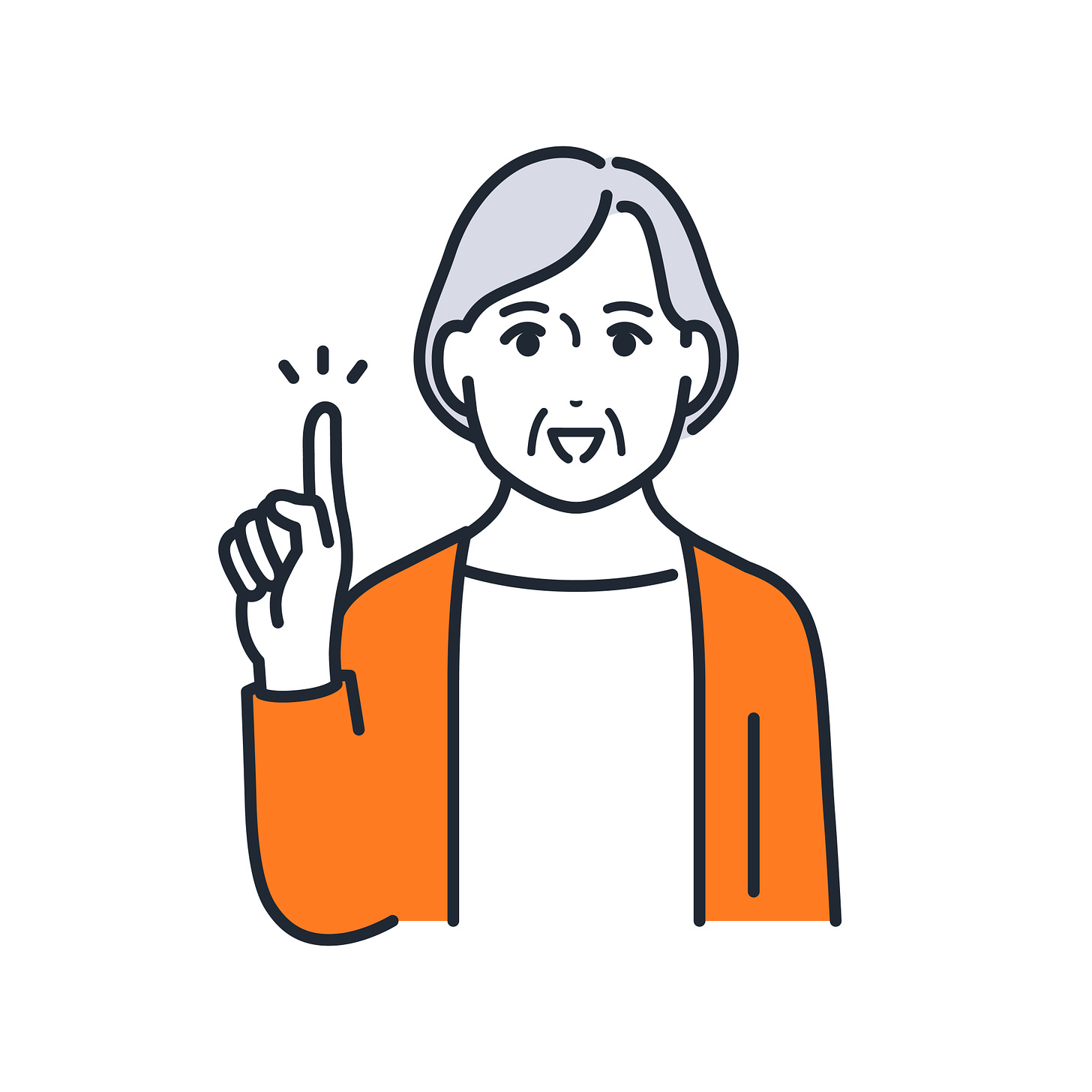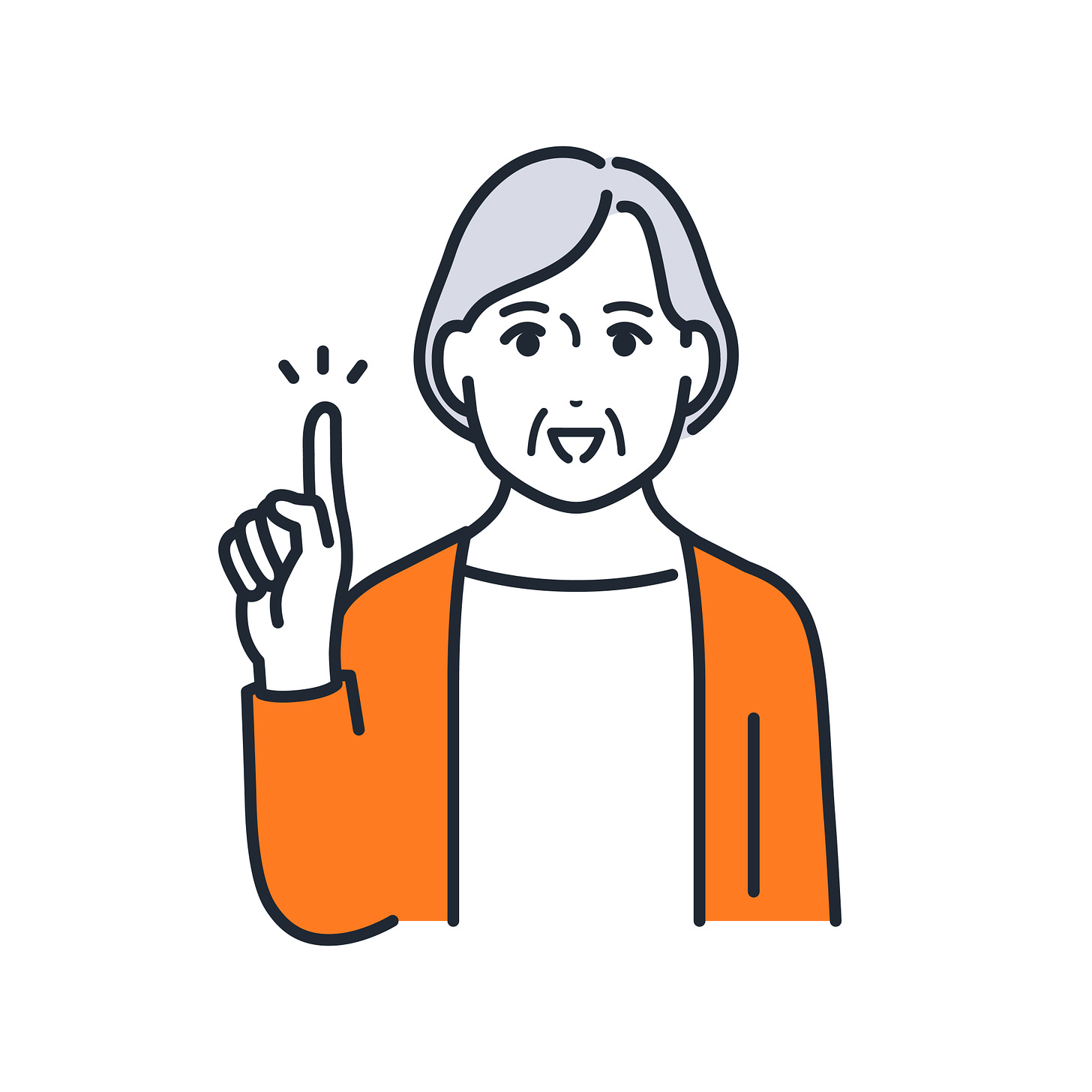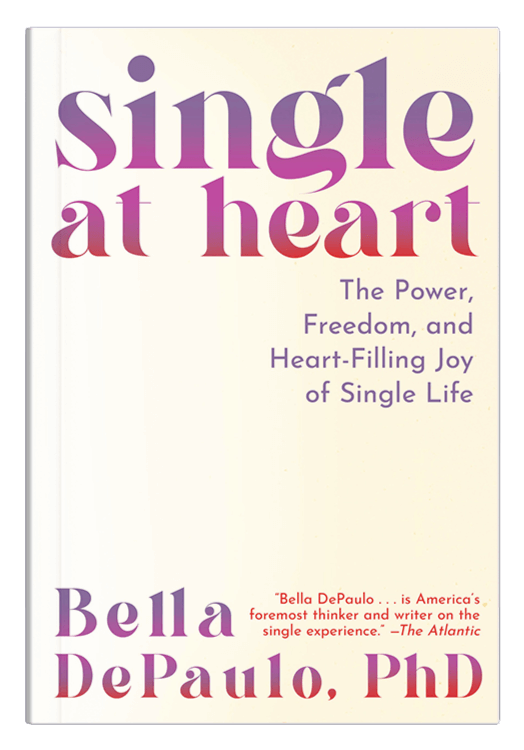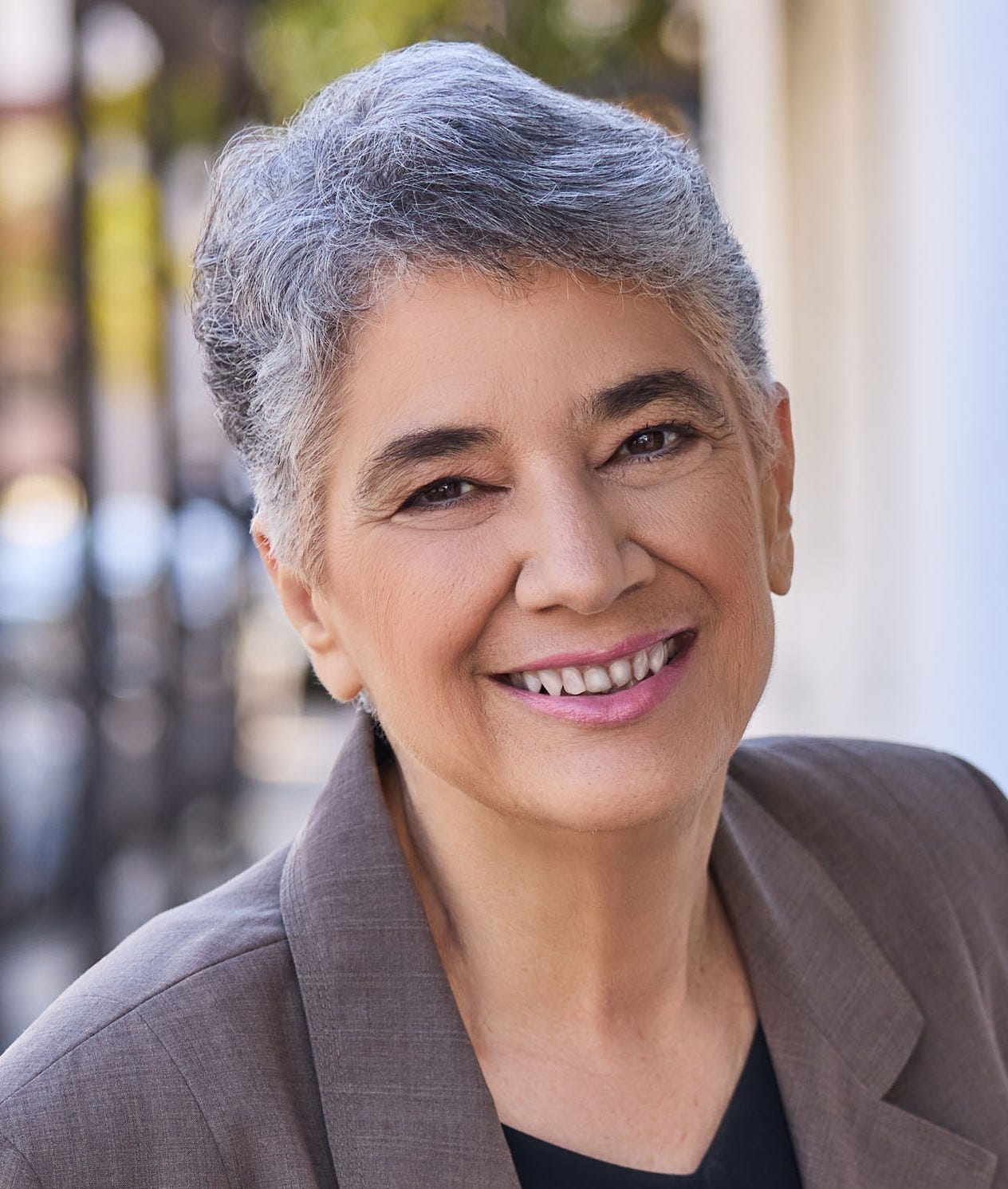The Forgotten Lovers of Single Life
70-year-old Social Scientist Bella DePaulo on what it means to be “single at heart.” PLUS: an Oldster Magazine Friday Open Thread about positive experiences of living solo and unattached.
Readers,
Today I’m sharing an essay by 70-year-old social scientist Bella DePaulo about people (like her) who prefer to be single most or all of their lives, and into old age. It’s also about our culture’s failure to recognize singlehood as a legitimate, acceptable—and hardly pitiable—way of living for those who choose it, and DePaulo’s work de-stigmatizing singlehood.
Society privileges those who are partnered, and pressures us to couple up. But despite the messages we receive from a young age about the importance of landing a partner for happily-ever-after, long-term relationships aren’t for everyone; not every person aspires to be coupled. But when “the forgotten lovers of single life” (as DePaulo calls her cohort) tell people they are happily unattached, they are often faced with disbelief, and, worse, pressure to date and marry.
I thought this would be a good subject to both read about, and to have you weigh in on. So I’ve combined DePaulo’s essay with an Oldster Magazine Friday Open Thread, and I invite you to weigh in in the comments. Tell me:
How old are you? Are you single by choice? Or are you happy to be single, even if you didn’t choose it? What happens when you tell people that? How long have you been unattached? What do you like about it? What’s challenging about it?
Below is DePaulo’s essay:
The Forgotten Lovers of Single Life
70-year-old Social Scientist Bella DePaulo on what it means to be “single at heart.”
—
On CNN, the picture is of an old man, all alone, staring out his window. On NPR, it is another old man standing alone, looking out his door. At AARP, the picture is of an old woman, sitting alone on her couch, staring solemnly into the distance. All were used to illustrate stories about the loneliness epidemic.
In the popular imagination, people who are single, old, and living alone are the picture of despair. That representation is so relentless, it even infects the way certain social scientists describe their own contrary findings. Take, for example, a study that produced the glorious, stereotype-shattering findings that as people without romantic partners sail into midlife and beyond, they became happier and happier with their single lives. How did the researchers explain their results? Did they point to the potential for profound fulfillment in single life that people increasingly appreciate as they age? No. Instead, they speculated that perhaps the single people had “come to terms with being single.” “Coming to terms with” is something you do if you have a deadly disease. Singlehood is not a deadly disease.
Some older single people who live alone really do fit the “woe is me” narrative. They are sad and lonely. They may even think of themselves as having come to terms with their single lives. But woe is not me. I’m 70 and I live alone. I have always been single and I always will be. That’s because I love being single. I dated a few men when I was a lot younger, and I still smile when I think of them. But each time, when we went our separate ways, I was just so happy to leap back into the arms of my one true love – my single life.
In the popular imagination, people who are single, old, and living alone are the picture of despair. That representation is so relentless, it even infects the way certain social scientists describe their own contrary findings. Take, for example, a study that produced the glorious, stereotype-shattering findings that as people without romantic partners sail into midlife and beyond, they became happier and happier with their single lives.
Single life is my best life – my most joyful, meaningful, fulfilling, and psychologically rich life. I call people like me “single at heart” and there are more of us than anyone ever imagined. We are happy and flourishing because we are single, not in spite of it. If we tried to organize our lives around a romantic partner, as we are expected to do, our lives would feel smaller, constraining, and fake.
I have long yearned to read stories of single life that validate the joy I experience by living single. I’m a social psychologist and I’ve been studying single people for three decades. I know that for people who are powerfully drawn to single life, there are scientifically documented advantages to embracing that life rather than scurrying away from it. No one else was telling that story, so I wrote Single at Heart: The Power, Freedom, and Heart-Filling Joy of Single Life.
In early December, the day before Single at Heart was published, my essay about my own single at heart life appeared in the Huffington Post. In “I’m 70 and I’ve lived alone my entire adult life. Here’s what everyone gets wrong about single people,” I described getting to live single my whole life as my great, good fortune. I said that I cherished my freedom and savored my solitude as well as my relationships with the important people in my life – “The Ones” rather than “The One.” I noted that as I grew older, my single life just kept getting better and better.
The piece had only been out an hour or so when I got an email from a man who said, “huge THANK YOU for explaining what so many people don’t understand. I am 75 and have been happily single my entire life.” Before I finished reading the five paragraphs he wrote, another email popped up. An 84-year-old man said, “I have always felt I was different because I liked being alone with my thoughts. Thank you for letting the world know there are other ways to live than by conformity.” Then another from a 50-something-year-old woman who said, “I feel blessed and lucky to be single.”
Woe is not me. I’m 70 and I live alone. I have always been single and I always will be. That’s because I love being single. I dated a few men when I was a lot younger, and I still smile when I think of them. But each time, when we went our separate ways, I was just so happy to leap back into the arms of my one true love – my single life.
Within two days, I had personal emails from 43 people and then they just kept coming. Dozens more left messages on social media. A few snail-mailed handwritten notes in elegant cards. It is now months later, and readers are still discovering the essay and writing to me about it.
Of those who revealed their age, all were between the ages of 50-something and 90.
I’ve been publishing articles about single people since 2004, when I wrote the op-ed, “Sex and the Single Voter,” but I have never had such an instant and massive outpouring of personal messages as I did after the Huffington Post piece. I started asking single people why they thought this had happened. One said it was random and I should just move on. But then in February, the New York Times published “Over 60, Single and Never Happier” about people who fit that description. It was one of the most emailed articles that week and drew more than 2,300 comments.
Why was this happening?
Throughout their lives, these older people had heard one kind of story about being single, a deficit narrative. Single people, they had been told, just don’t measure up to those awesome romantic couples. They aren’t truly happy or fulfilled. If they stay single as they grow older, they will become even less happy and less fulfilled.
My essay gave them a new narrative, about the power, freedom, and heart-filling joy of single life. It honored and validated their experiences rather than gaslighting them. They read what I said about my life, then told me a similar account of theirs, almost like a call and response.
I don’t think any of the people who wrote to me about my essay had ever read such a joyful and totally unapologetic take on single life. A take with no hedging — no “sure, I’m single now, but never say never.” I said never. Then they did too. They said they would not give up their single life for anything or anyone.
I described the satisfaction I find in the time I spend alone. I told them that a love of solitude, far from being a character flaw or a health risk, is a strength – one that has protected me from loneliness, got me through the worst of the pandemic, and undergirds my continued flourishing as I grow older. A 62-year-old woman agreed: “That whole pandemic!!?! What pandemic??!?” A 70-year-old woman said that she considered her solitude “a gift beyond measure.”
Throughout their lives, these older people had heard one kind of story about being single, a deficit narrative. Single people, they had been told, just don’t measure up to those awesome romantic couples. They aren’t truly happy or fulfilled. If they stay single as they grow older, they will become even less happy and less fulfilled…My essay gave them a new narrative, about the power, freedom, and heart-filling joy of single life. It honored and validated their experiences rather than gaslighting them.
The single at heart life, I said, is a life of possibilities. We get to use our freedom to fashion lives consistent with our values and passions. For me, that means a life of the mind, doing work I find deeply meaningful – rewriting what it can mean to be single. In response, a diplomat told me that he had always dreamed of a career in foreign service; as a single man, he could pursue that dream unencumbered. A widow who had been married for decades said that she is now finding joy in the experiences she never pursued when she was married. A woman of little means described the immense sense of freedom she experiences when she hops into her camper with her dog and parks at the cusp of the beach. She had been married before and wishes she had discovered a long time ago how happy she would be living single.
Most people who wrote to me were unmarried and recognized in my essay who they really were. Others were married and realized who they could have been. A 61-year-old married woman told me she always knew she wanted to stay single, but instead did what she was supposed to do and married. She believes that being married cost her opportunities and undermined her full potential. She fantasizes about being single, but “How do you explain to anyone that you simply prefer to live a single life?”
Readers knew from my essay that if they told me how happy they were to be single, I would believe them. And so they did. A gay man said that his expressions of his love of his single life were so often met with incredulousness or pity that after a while, he began to doubt himself. It was a theme I heard over and over again in the stories shared with me for my Single at Heart book. Here were people who had what so many of us crave – a happy, meaningful, and psychologically rich life. And yet, they worried that being happily single meant there was something wrong with them. They bought self-help books. They tried therapy. They forced themselves to date.
The single at heart life, I said, is a life of possibilities. We get to use our freedom to fashion lives consistent with our values and passions. For me, that means a life of the mind, doing work I find deeply meaningful – rewriting what it can mean to be single.
Some did something else, too – they kept their happiness to themselves. A 74-year-old lifelong single woman said that she had always known that single life was her source of strength and joy, but it took her many years to say so publicly. Another woman who shared her story in Single at Heart recounted a conversation she had with a coworker about being single: “I felt like there was no way that I could admit that I was completely content to be single forever, because it made me feel like a freak.”
The reluctance of happily single people to own their happiness perpetuates the misleading but widely shared belief that no one really wants to be single, at least not for the long term. Years ago, a reporter for the Washington Post interviewed me at my home in California for a cover story she was writing for the paper’s magazine. She did not express any skepticism about my happiness or my desire to stay single in our conversations, but in her published story, she cast me as a rare bird: “After leaving DePaulo, I tried to think of people I’ve known who fit her category. A few came to mind, but I could name many more who have spent a long time looking for lasting love.” I wonder how many of the people she’s known actually were happily single but not about to tell her that, even if she hadn’t been writing the wedding column for the Post at the time.
Watch Bella DePaulo’s TED Talk from 7 years ago:
I now think of the single at heart oldsters as the forgotten lovers of single life. They’ve been contentedly single, but not about to make a fuss over it. Because they’ve mostly stayed quiet about how they feel, their demographic continues to be caricatured as sad and lonely. And because they so rarely hear affirming narratives of what it means to be single in later life, they sometimes wonder if they really are as happy as they think they are.
The cycle needed to be interrupted. My essay and my Single at Heart book were small steps toward doing that. I wish someone else – or better still, lots of someones – had already written joyful stories many years ago. But now it is happening. The older lovers of single life have the validation they so richly deserved and waited a lifetime to receive. They can proudly exit the cycle of stigma and doubt. Now they have the confidence to own their happiness. They can delete the dating apps, donate their self-help books, walk away from their therapists, live happily ever after. And know that their happiness is true.
Okay, your turn. Tell us:
How old are you? Are you single by choice? Or are you happy to be single, even if you didn’t choose it? What happens when you tell people that? How long have you been unattached? What do you like about it? What’s challenging about it?
Thank you for chiming in, and for all your support!
-Sari











I’m 36, I’ve been single for over a decade. The longer I’m single the more I realize getting involved in a relationship is probably not in the cards for me. I do have two kids (teenagers, now), but I’ve raised them alone since they were babies and I’ve loved it. I’m a terrible co-parent. I don’t enjoy sharing decision making. When I think about the great joys of my life, raising my kids by myself is one of them, and not being involved with anyone during that time is a close second. Even when things have been difficult, even when my daughter went through treatment for leukemia, I still felt a relief that I get to do all of this alone.
I’ve built a life that I feel happy and safe in, and it feels good to know it’s mine- it can’t be upended by anyone else’s choices or whims. I love traveling solo, I have wonderful rich friendships with people who have been involved in my and my kids lives for over a decade, I go to restaurants I enjoy and see movies I want to see. I can’t remember the last time I felt lonely.
When my kids were little I got a lot of ‘kids need a father’ and I still hear a lot of ‘the right person will come along’ and I just think, ‘the right person has come along. I feel like the right person for me.’ I’m looking ahead to my kids going to college and, for the first time in my adult life, being a bit more on my own, living in my home alone, and it doesn’t feel daunting, it feels exciting. At no point have I thought, ‘I wish someone else were here for this,’ I’m always in a state of, ‘I’m so glad I’m here for this.’
Yay! I’m 65 and have been single for the past 25 years. I love solitude. I love the quiet spaciousness of it. I taught kids for 30 years & grew up in a rambunctious family. The quiet is my favorite aspect. I can focus. It is peaceful. I love the gift of self-determination, the opportunity to explore what I please without compromise & to take responsibility for choices made entirely by myself. In dropping a myth of the romantic couple I’ve allowed myself to love myself, to trust myself. It’s been the greatest liberation.